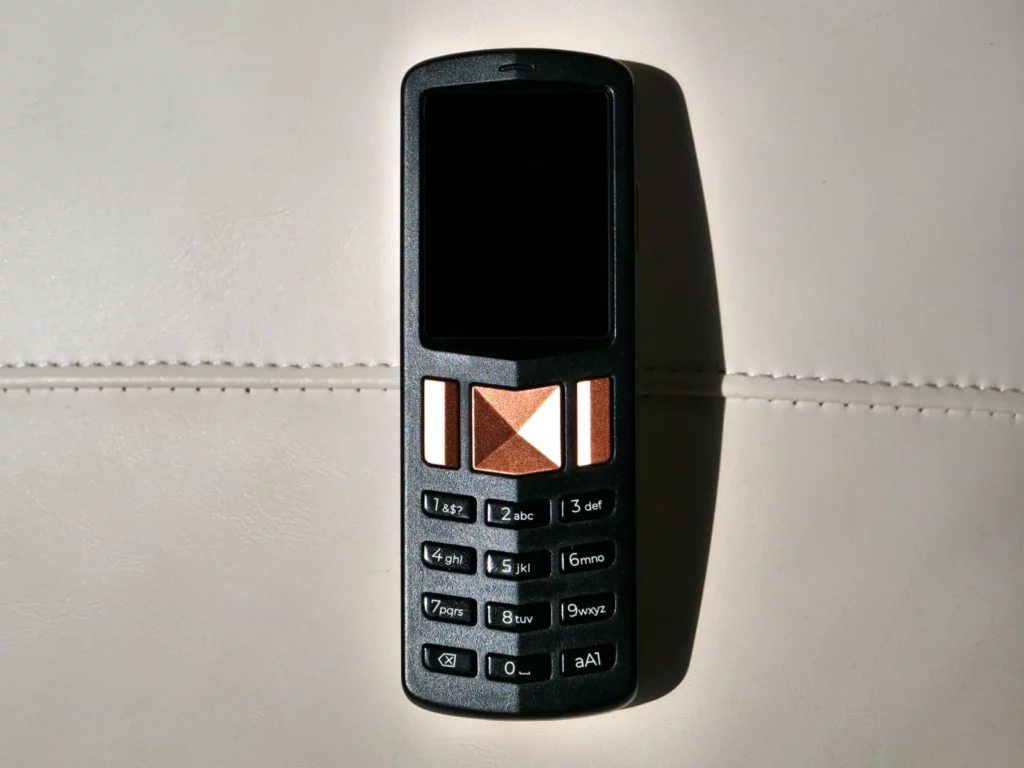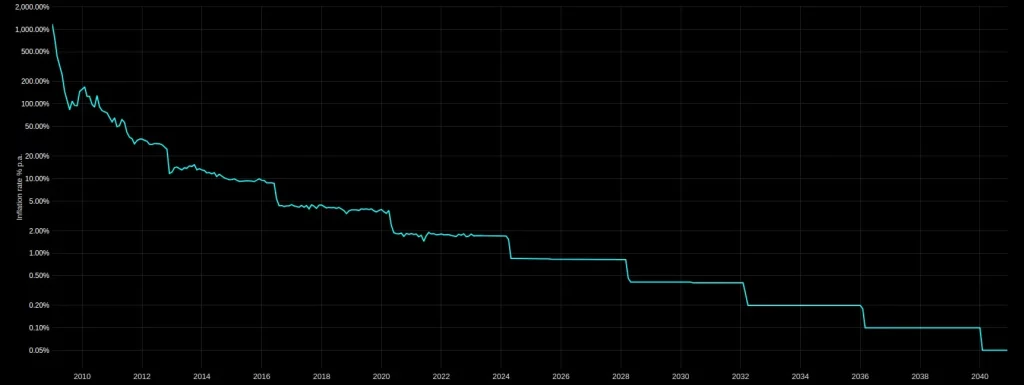Investing is tricky. Even if you do it perfectly right and score that “average” 8% return year after year (lol no one does) there are hidden costs lurking in every corner. From repair costs to management fees to carrying costs, every single asset class has them in spades. Except for Bitcoin.
Bitcoin carrying costs are essentially zero. Not “low” or 0.8% p.a. Zero. While there are other costs associated with investing in Bitcoin, these are pennies on the dollar when compared to traditional investments.
If you invest, you need to wake up to this fact now. Discussions about costs might not be as exciting as chatting with your peers about how prices are going to the Moon… but it’s an incredibly important thing that’s not only under your control, but that will also give a huge boost to your wealth over the years.
Contents
What Are Carrying Costs?
Carrying costs are what you pay to hold an asset and keep it in its pristine, original condition.
For example, real estate carrying costs include things like yearly rates, repair and upkeep costs or body corporate fees. Carrying costs – also sometimes called storage costs – are just a reality that every investor has to deal with. Every asset class has them and you can never escape them.
Houses have to be repaired. Index funds have to be adjusted from time to time as company valuations go up and down. Gold usually has to be stored in a bank which charges you for that service. Even keeping cash stuffed in your mattress has a carry cost as that money inevitably gets inflated away over time as more USD gets printed and your purchasing power is diluted.
The inflation rate in the United States between 2014 and 2024 has been 32.7%. That means that $1,000 stored in a mattress 10 years ago would only buy $753 worth of goods today
Even if you’re not an investor, even if you just have your savings in a bank account and are going about your daily life… you’re still experiencing the problem of carrying costs. Your money is getting debased. Inflated away to nothingness the longer you’re a part of the system. It’s like a leach, sucking the money and life out of you but doing it so slowly that you don’t even notice or feel it.
Bitcoin’s carrying costs aren’t zero. But. They are pretty damn unbelievable in our eyes. As most investors don’t think or care about carrying costs it’s not something that many realize is such an amazing property of Bitcoin. Normally investors are only focused on the “return” while ignoring everything else. But just because no one thinks about it, doesn’t mean it doesn’t exist.
Your property might go up by $100,000 between the time you bought and sold it, but if you had to pay thousands in rates over the years, spend tens of thousands on maintenance, home owners association costs, storm damage costs or more then that amazing “return” isn’t quite what you think it is. Add in inflation costs and maybe you actually lost money?
Carry costs are important for investors even if you’d rather focus on the shiny things like share price or dividends. So what’s involved in Bitcoin carry costs?
Bitcoin Carrying Costs
Bitcoin only has two carrying costs: Inflation and custody costs.
We’ll get into each of these in more details below, but first let’s look at all the other carrying costs you avoid by holding bitcoin.
With no physical form, Bitcoin has no ongoing storage costs. For things like gold, silver, jewelry or even a businesses inventory this can represent a major cost of holding the asset. For Bitcoin it’s literally zero, forever.
With no physical form, Bitcoin has no physical degradation so there’s no upkeep or repair costs. A house will decay over time. Your business shop might get flooded or hit by a hurricane. Maybe the investment property you Airbnb out needs a new hot water system or the tenant damages the carpet somehow needing costly repairs. These things never apply to Bitcoin.
As bitcoins require no active management, they have no management fees. A mutual fund, which is one of the most common and widespread investments, will usually charge you an expense ratio. This is an ongoing fee to manage the funds and is proportional to the investment amount. So the more you invest, the bigger the fees get!
All these points result in what’s essentially zero traditional carrying costs and even though no one likes to pay attention to it, these costs are a big deal! To help illustrate this let’s run some simple numbers:
Scenario 1: Alice buys $50,000 in bitcoins that returns 7% per year on average and costs 0% in annual fees. After 25 years she’ll have around $270,000
Scenario 2: Bob buys $50,000 in a mutual fund that returns 7% per year and costs 0.69% in annual fees. After 25 years he’ll have around $230,000
Scenario 3: Jim buys $50,000 in a mutual fund that returns 7% per year and costs 2% in annual fees. After 25 years he’ll have around $170,000
Note: This is not financial advice or a recommendation to go and buy $50,000 of bitcoin instead of a mutual fund obviously. Make sure you always consult a certified financial adviser so they can take into account your personal situation before investing anything. This is simply to demonstrate the huge difference that fees make.
As you can see the maths doesn’t lie. Even with the exact same return and a “good” fee, you’re still bleeding out $50,000 over 25 years or a full $100,000 for the “high” fee in scenario 3. Carrying costs absolutely matter and the above example is only for just one of them! So let’s now look into what carrying costs Bitcoin does have.
Bitcoin Custody Costs

The first carry cost of Bitcoin is the custody or storage of it. As bitcoins are stored* in a Bitcoin Wallet this cost can take on many different forms. This can be $0 or maybe up to a once off $500 if you have some hardware Multisig Wallet setup.
*Note: bitcoins are not actually “stored” in your Bitcoin Wallet, they’re stored on the Blockchain. Wallets should be viewed more like Key Managers. They generate, store and manage your private keys which is what gives you access to your bitcoins on the Bitcoin Blockchain.
Bitcoin wallets can be hot or cold, software or hardware and most importantly, you can hold the Private Keys or someone else can on your behalf. As private keys give you access to your bitcoins, it’s important to know who holds them:
- Self-Custodial: You hold the private keys and have full control of your bitcoins
- Custodial: A third party holds the private keys giving them full control of your bitcoins
In regards to ongoing carrying costs, if you self-custody your own bitcoins then there’s no additional cost. If someone else takes custody then they can (but not always) charge you an ongoing fee.
While not specifically stated in the Bitcoin Whitepaper, the general ethos of Bitcoin is that you should always have custody of your bitcoins and hold your own private keys. You should be the only one that holds the private keys as otherwise you have to place your trust in other third parties.
As such we’re going to assume that you hold your keys and that this cost is zero. Even if it’s free to keep your coins on a centralized exchange, they have the nasty habit of going bankrupt.
Learn More: What Are Public And Private Keys?
There are also digital asset custody solutions out there that are separate to exchanges. These charge a fee to help you craft and be a part of a multisig wallet setup. They can also help pass on custody of your bitcoins if you die.
While these Bitcoin custody services are legitimate and can be very useful for those with significant investments, they’re not mandatory. You can absolutely be a complete degenerate retard and keep 10 figures in a damn browser extension wallet if you really wanted to. Please don’t though.
Finally there’s the up front cost of purchasing a Hardware Wallets, Full Bitcoin Node components or other bitcoin related wallet stuff. From metal seed plates to tamper evident bags to a fire proof safe, these all do indeed cost money but are one time costs.
You can buy a BitBox02 for $139 USD, pair it with Sparrow Wallet on a computer (free) and that’ll do you for a good 5-10 years. Importantly this cost is the same for 0.001 BTC or 1,000,000 BTC. No other asset class can compete or even come close to that!
Bitcoin Inflation Costs
Inflation cost is the loss in purchasing power your bitcoins incur given there’s always new ones being minted with each new block. These new bitcoins make all existing bitcoins slightly less valuable and dilute the scarcity of the asset.
To us, this is basically the only actual carrying cost to Bitcoin. While you might buy a Hardware Wallet as per above, $150 isn’t going to mean anything in the long run. Inflation on the other hand represents an ongoing cost and can add up to a moderate amount.
Importantly though, all other assets also have inflation costs built into them and Bitcoin is one of the lowest out there. Bitcoins inflation rate is also very accurately predictable and contained, where as most other assets future inflation rates are unknown.
For example, no one knows how much the USD will inflate next year or in 2040, so if you’re investing in a property or shares you don’t know how this will effect that investment.
To calculate the inflation rate of Bitcoin is very straightforward. It only requires basic maths such as multiplication and dividing and has two steps. First you calculate How Many New Bitcoins are being minted each year (the current block reward is 3.125 BTC):
3.125 (bitcoins per block) x 6 (blocks per hour) x 24 x 365 = 164,250 bitcoins per year
As of writing there’s ~19,739,771 bitcoins, so adding 164,250 to the pile gives an inflation rate of:
164,250 / 19,739,771 = 0.832% p.a.
The next Bitcoin Halving will halve that block reward from 3.125 bitcoins per block down to 1.5625, which will reduce that inflation rate to around 0.417% p.a. It’s because of this predictable block reward reduction schedule that we can even predict what the inflation rate will be in 2040: 0.05%.

If we compare this carrying cost to other assets like the USD it becomes painfully clear just how extremely low and dependable it is.
It doesn’t matter what time period you choose, long or short, the inflation rate is horrific and the result is an absolute pummeling of your investments. Say we had $1,000 USD at the starting points of the below time periods stuffed away “safely” in our mattress. This is the average yearly inflation rate and how much you’d have left by now:
- 2018-2024 (5 Year Period): 4.58% p.a. and $1,000 -> $813.69
- 2014-2024 (10 Year Period): 3.27% p.a. and $1,000 -> $753.58
- 1999-2024 (25 Year Period): 3.54% p.a. and $1,000 -> $530.22
- 1974-2024 (50 Year Period): 10.75% p.a. and $1,000 -> $156.92
Bitcoin does has a significant carrying cost when it comes to inflation at 0.83%, but it’s extremely low compared to other assets, is getting lower after each halving and is dependable and predictable.
Buying / Selling Costs
While not technically a “carrying” cost, the exchange trading fee you pay when you buy and sell your bitcoins can be considered part of the overall investment. These fees are charged by exchange platforms when you exchange one thing for another, for example USD for BTC.
Different exchanges charge different fees ranging from free to fractions of a percent. As an example, Bisq charges a trading fee of 0.12% for the “maker” and 0.88% for the “taker” of an offer. This means if you put up an offer saying you want to buy 0.1 BTC, you’ll have to pay 0.00012 BTC for the trade. If you wanted to sell your bitcoins you’d again pay the same fee.
Bitcoin Transaction Costs
Once you’ve bought your bitcoin, you’ll likely want to transfer it to another wallet for cold storage. This transaction will incur a Bitcoin Transaction Fee and is again, a once off fee. If you’re doing this right then you can easily get away with it being a couple of hundred sats or so. As such, we also don’t really consider this to be a carrying cost.
Not only is it a very tiny amount in the grand scheme of things, but once in cold storage, it’s not an ongoing fee either. You will have to pay it again to move the bitcoins out of the cold storage though as that’s another transaction.
Total Bitcoin Carrying Costs Estimate
The total Bitcoin carrying costs is for the most part made up of the loss of purchasing power through inflation / dilution which is 0.83% for now. In 2028 it’ll drop to 0.41%.
If you want to consider the full costs of investing in Bitcoin then you should also add:
- Exchange fees charged for buying and selling the bitcoins
- Bitcoin transaction fees paid to transfer the bitcoins to and from your Bitcoin Wallet
- Any custody service fees you incur (this is zero if you do it all yourself)
- Any hardware you buy such as Hardware Wallets, metal seed plates, safes etc
Even with all these costs Bitcoin still wipes the floor with every other asset or money. Never before in history has there been an investment with such low carrying costs.
Bitcoin storage costs are unbelievable and more investors need to wake up to this fact. It’s not as shiny as Bitcoin hitting $100,000… but it makes a huge difference to your wealth, especially as more and more years go by. So don’t fade the carry costs. Carry Bitcoin.
FAQ
How Much Does It Cost To Store Bitcoin?
The cost to store bitcoins depends on how you store them. If you use a software or “hot” wallet, then the cost is usually nothing. You download a free Bitcoin Wallet and transfer the bitcoins to that new wallet.
If you want to store them in a Hardware Wallet, then you’ll need to purchase the Hardware Wallet device. While this does cost money, it’s not usually a huge cost with various devices usually costing around $100-$150 USD. This is also a once off cost and isn’t dependent on how much bitcoin you have or how long you’re wanting to store it.
Can You Physically Hold A Bitcoin?
No. As Bitcoin is a Cryptocurrency, it has no physical real world presence (like a $5 note).
Does It Cost To Move Crypto To A Wallet?
Yes. Whenever you move a cryptocurrency like Bitcoin a transaction is required and as such, a Bitcoin Transaction Fee needs to be paid. While you can technically transfer bitcoins for free, it’s not advised as your transaction may get stuck.
How Do I Avoid High Bitcoin Fees?
The best ways to avoid high Bitcoin transaction fees is to:
– Complete the transaction when the network is quiet
– Make sure you wallet is calculating the correct fee
– Reduce the size (in kilobytes) of your transaction
Read More: Bitcoin Transaction Fees And How To Make Them Cheap & Fast



